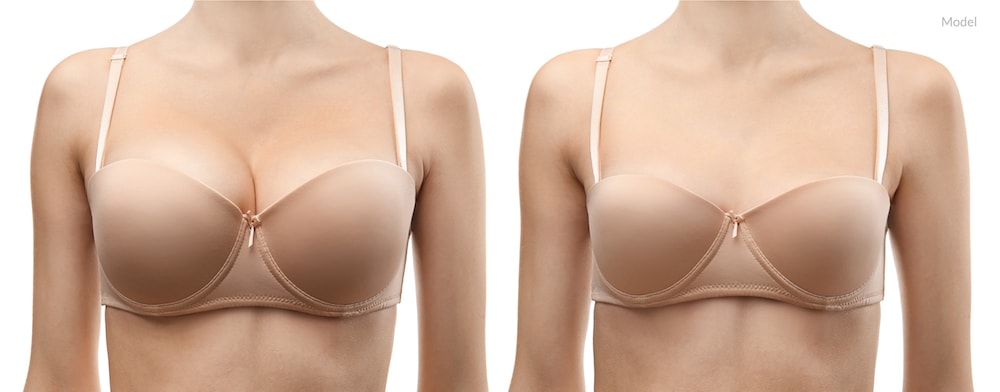Posted January 24, 2022 in Breast Reduction

For those women who suffer from heavy, pendulous breasts, the decision to undergo a breast reduction can be a life-changing choice. But like all elective cosmetic procedures, a breast reduction comes along with lots of questions–and sometimes fears–about the procedure itself, what to expect during the recovery period, and the final result. Sometimes, this leaves you with questions about breast reduction surgery and whether it’s right for you.
To make the decision that much easier, we answer the top FAQs regarding breast reduction so that you don’t have to.
1. How much smaller will my new breasts be?
Patient-surgeon communication is paramount when determining the appropriate size for your breasts. Along with the help of your plastic surgeon, your breasts should complement your body frame and be small enough to prevent any pain from ensuing, yet they should be large enough that the patient is still happy with their size.
Instead of focusing on a specific cup or bra size or a number of CCs, it’s best to work towards an achievable comfort goal with your doctor. Remember, eliminating any extra weight is the name of the game, but that doesn’t mean your breasts need to be nonexistent. Bring photos of sizes that you like for your surgeon to use as a reference point to tailor the surgery to your desires.
2. Will there be scars?
Yes, there will be scars following a breast reduction. However, the type of scars and their location depends upon your surgeon’s technique. Typically, the resulting scars are around the areola and down into the breast fold. If excess skin is an issue, your surgeon can also remove it during the procedure.
While the scars will be red and raised in the beginning, they will start to fade and flatten out with time. It can take upwards of one to two years for your scars to become less noticeable.
3. Will I lose all feeling in my breasts?
Long-term, there should be no permanent changes in feeling or sensation in and around the breasts and the nipples. However, immediately after the surgery, during the recovery process, and even in the months following surgery, it is common to experience decreased feeling and sensation.
4. Can my breasts ever ‘grow’ back?
Never say never. Although it’s rare, the breasts can become larger if there is a significant hormonal change within the body. However, for the most part, once the breasts are surgically reduced, they will retain their new size since fat, breast tissue, and excess skin are removed.
5. How much time should I plan to take off for the recovery?
It’s best to discuss how much time to take off with your doctor, which often depends on the extent of your surgery. Most patients require one to two weeks of complete downtime to recover and rest.
If you have children at home or need a hand around the house, it’s best to line that up in advance. Also, you’ll be limited in terms of what you can physically do for the first four to six weeks, so make sure you arrange for someone to help out with anything that requires heavy lifting or physical activity since you will be limited.
6. Do I need to lose weight before the procedure?
During your consultation, you can discuss the ideal weight for your body type with your surgeon. The best surgical results come when patients are at or very close to their ideal weight. Overweight patients and those with higher BMIs are at a higher risk of developing infections and prolonged wound healing than those at their ideal weight.
Following the procedure, it is important to follow healthy habits, including regular exercise and eating clean to ensure long-lasting results.
7. Does insurance cover my surgery?
There’s a good possibility that your insurance will cover your surgery, but it depends on a few variables. For starters, the type of coverage your policy offers and the nuances attached to that policy dictates whether or not your insurance will cover your surgery. For example, some policies cover the entire procedure, others pay for or reimburse a portion of the operation.
From there, each insurance company has different rules and indications of what they will and will not cover. For example, some companies have a hard and fast rule about how long the surgery can last, while others only allow a certain amount of breast tissue to be excised and covered. Most insurance companies also require proof (often long-documented) of pain, interferences, and inconveniences, although other medical evidence may be necessary, too.
8. Are there any significant risks I should know about Breast Reduction Surgery?
Like all cosmetic procedures, breast reduction is not without its risks, too. However, the potential dangers with anesthesia are the same as those with any other type of procedure. In addition, most plastic surgeons will warn of standard dangers, including blood clots, decreased sensation in and around the nipple area, and the uncommon risk of blood supply damage, which can cause loss of the nipple.




